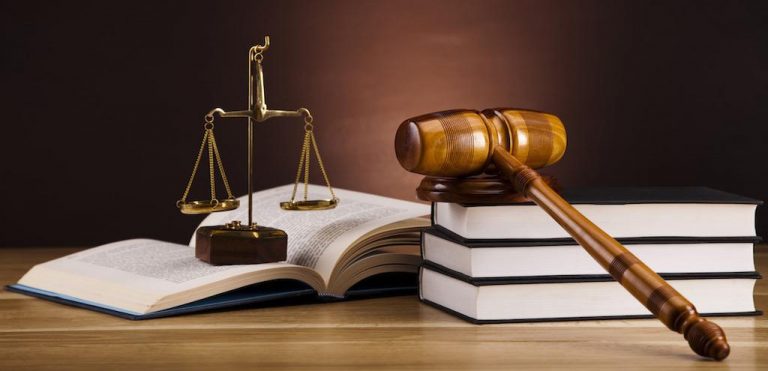
Soft law refers to non-binding rules, principles, or standards that influence behavior and decision-making without formal legal sanctions. Although lacking enforceability in courts, soft law can still shape practice through mechanisms such as reputation, peer pressure, and market incentives1. As defined by Black’s Law Dictionary2, it encompasses quasi-legal instruments with uncertain legal status but often significant practical implications. It may serve as a precursor to the establishment of binding legal norms over time.
A recent case highlighting the limitations of soft law emerged following an anonymous complaint submitted to the Department of Pharmaceuticals (DoP), backed by documentary evidence. The complaint alleged that AbbVie Pvt. Ltd. had sponsored international travel and accommodation for 30 doctors to attend the Aesthetics & Anti-Aging Medicine World Congress 2024 in Monaco and Paris, under the pretext of medical education. In response, a special audit committee was formed in September 2024 to investigate the matter. The audit confirmed that AbbVie had violated the Uniform Code for Pharmaceutical Marketing Practices (UCPMP) of both 2014 and 2024 by promoting aesthetic products such as Botox and Juvederm through unethical sponsorship. An order issued by the Apex Committee for Promotion and Marketing of Pharmaceuticals (ACPMP) on December 23, 2024, validated all allegations and established the breach of the voluntary UCPMP guidelines3. This incident also triggered the issue of soft law. Although in media it circulates as toothless law but in reality it is soft law. “Toothless law” usually refers to something that claims to be binding or is passed as law, but lacks the means or will for enforcement. UCPMP is soft law, not toothless law in the strict sense. But its lack of enforcement and limited impact have led many observers to criticize it as toothless in practice, even if not in legal theory4.
The Law
In India, the requirement for doctors and pharmaceutical companies to report or avoid unethical practices, such as sponsored trips, primarily stems from ethical guidelines and codes, not a standalone statute. However, enforcement can be linked to the following legal and regulatory frameworks:
1. Indian Medical Council (Professional Conduct, Etiquette and Ethics) Regulations, 20025
- Regulation 6.8.1: Prohibits doctors from receiving gifts, travel facilities, hospitality, cash or monetary grants from pharmaceutical or allied healthcare industries. The prohibition on taking travel favors is also extended to family members via the 2016 amendment.
Enforcement: These regulations are binding under the National Medical Commission Act, 2019, which replaced the Medical Council of India. - Legal Status: Doctors who violate these ethics can face penalties, including censure, suspension, or even license cancellation by the National Medical Commission (NMC). No doctor can plead ignorance of the law, as doctors duly sign a copy of the declaration of their knowledge at the time of registration.
2. Uniform Code for Pharmaceutical Marketing Practices (UCPMP)6
- Issued by the Department of Pharmaceuticals (DoP) under the Ministry of Chemicals and Fertilizers.
- It prohibits pharma companies from offering gifts, travel, or hospitality to healthcare professionals.
- Clause 8.2: Clearly states that no travel facility (domestic or international) should be extended to healthcare practitioners.
- Legal Status: As of 2024, the UCPMP was voluntary, but there have been ongoing calls and recommendations to make it legally binding.
3. Drugs and Magic Remedies (Objectionable Advertisements) Act, 19547
While not directly about sponsored trips, this Act prohibits misleading advertisements and incentives that can unduly influence medical decisions.
4. Prevention of Corruption Act, 19888
- Section-7: In public healthcare settings, if a doctor is a public servant (e.g., working in a government hospital), accepting sponsored trips could fall under bribery or corruption if linked to prescribing patterns.

- Dinah Shelton, “Soft Law,” in International Law (ed. Malcolm Evans, Oxford University Press). ↩︎
- Bryan A. Garner (Ed.), Black’s Law Dictionary, 11th edition, Thomson Reuters, 2019.
D ↩︎ - ₹1.19 Cr Pharma Sponsorship Audit — Irregularities Surface, Soft Law Limitations Noted ↩︎
- Cyril Amarchand Mangaldas. (2024, October 15). Uniform Code for Pharmaceutical Marketing Practices (UCPMP) 2024: Frequently Asked Questions. Retrieved from https://www.cyrilshroff.com/wp-content/uploads/2024/10/Client-Alert-FAQs-on-UCMPMD-2024.pdf
↩︎ - Medical Council of India. (2002). Indian Medical Council (Professional Conduct, Etiquette and Ethics) Regulations, 2002 (amended up to October 8, 2016). Retrieved from https://upload.indiacode.nic.in/showfile?actid=AC_CEN_12_13_00007_1956102_1517807321142&type=regulation&filename=10.Ethics%20Regulations-2002.pdf
↩︎ - Department of Pharmaceuticals. (2024). Uniform Code for Pharmaceutical Marketing Practices (UCPMP) 2024. Ministry of Chemicals and Fertilizers, Government of India. Retrieved from https://pharmaceuticals.gov.in/sites/default/files/UCPMP%202024%20for%20website.pdf ↩︎
- https://www.indiacode.nic.in/bitstream/123456789/1412/1/195421.pdf ↩︎
- https://www.indiacode.nic.in/bitstream/123456789/15302/1/pc_act,_1988.pdf ↩︎




